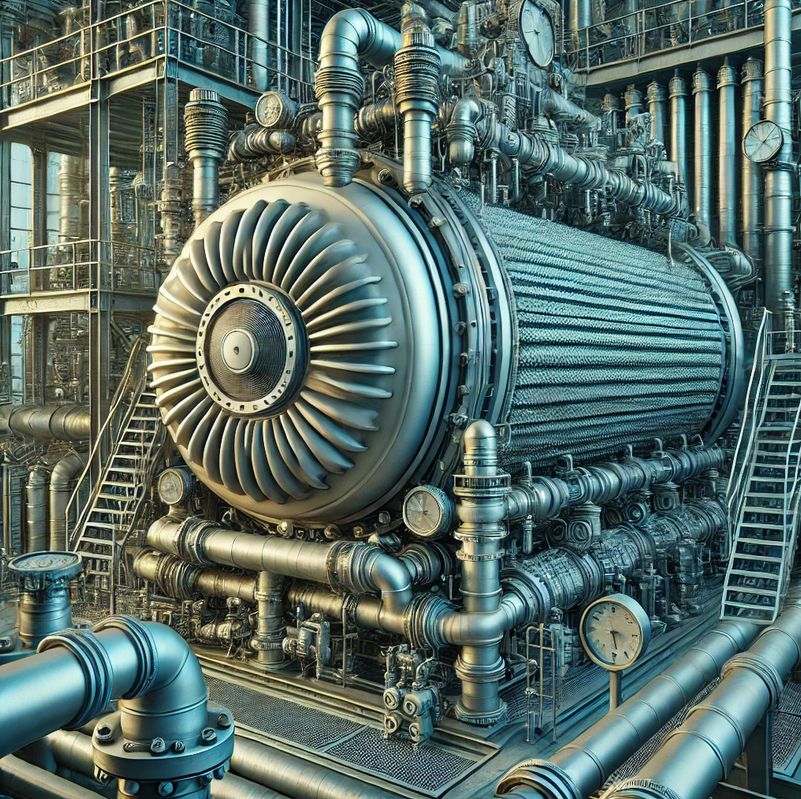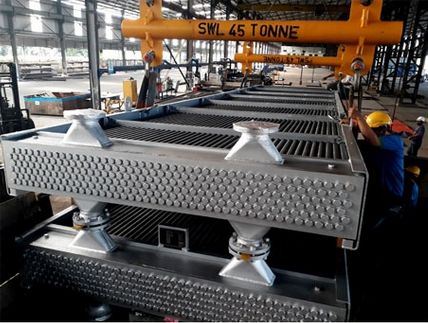What Are Air-Cooled Heat Exchangers?
Air-cooled heat exchangers (ACHEs) are essential components in various industrial processes, offering an efficient way to transfer heat without relying on water. Unlike traditional heat exchangers that use water or other liquids as the cooling medium, ACHEs utilize ambient air to cool process fluids, gases, or vapors. This technology is particularly advantageous in areas where water is scarce, expensive, or environmentally sensitive.
How Air-Cooled Heat Exchangers Work
The basic principle behind air cooled heat exchangers involves transferring heat from the process fluid to the air. The fluid flows through a series of finned tubes, which are designed to maximize surface area and enhance heat transfer. Fans or natural convection are used to circulate air over these tubes, dissipating the heat into the atmosphere. The cooled fluid is then recirculated back into the system for reuse, ensuring optimal temperature regulation.

Industrial Applications of Air-Cooled Heat Exchangers
Air-cooled heat exchangers are widely used across various industries, thanks to their versatility and efficiency. Here are some key industrial applications:
- Petrochemical and Refining: In the petrochemical and refining industries, ACHEs are crucial for cooling process streams and condensing vapors. They help maintain the proper temperature in reactors, distillation columns, and other equipment, ensuring safe and efficient operations.
- Power Generation: Power plants often rely on air-cooled heat exchangers for cooling turbine exhaust steam, condensers, and other critical systems. This is especially important in arid regions where water-cooled systems are not viable.
- Chemical Processing: Chemical plants utilize ACHEs to cool various chemical reactions, ensuring that temperatures remain within safe limits. This helps prevent overheating, which can lead to dangerous situations or reduce product quality.
- Oil and Gas: In the oil and gas industry, air-cooled heat exchangers are used for cooling natural gas, crude oil, and other hydrocarbons. They are also employed in the liquefaction process and for cooling compressed gases.
- HVAC Systems: While not as common, some large-scale HVAC systems use air-cooled heat exchangers to regulate building temperatures, particularly in areas with water restrictions.
Advantages of Air-Cooled Heat Exchangers
Air-cooled heat exchangers offer several benefits, making them a preferred choice in many industries:
- Water Conservation: Since they do not rely on water for cooling, ACHEs significantly reduce water consumption, which is critical in regions with limited water resources.
- Lower Operating Costs: By eliminating the need for water and associated treatment chemicals, ACHEs can lower operating and maintenance costs.
- Environmental Sustainability: ACHEs minimize the environmental impact by reducing water usage and eliminating thermal pollution associated with water-cooled systems.
- Reliability: These systems are highly reliable, with fewer moving parts and less susceptibility to corrosion compared to water-cooled alternatives.
Conclusion:
Air-cooled heat exchangers are vital components in numerous industrial applications, offering a sustainable, cost-effective, and reliable solution for heat transfer. Whether in petrochemical plants, power generation facilities, or chemical processing units, these systems ensure efficient temperature control without the need for water. As industries continue to prioritize sustainability and efficiency, the demand for air-cooled heat exchangers is expected to grow.
Service Description for Air-Cooled Heat Exchangers & Heat Exchangers
At YLE, we specialize in delivering top-tier heat transfer solutions that cater to various industrial needs. Our comprehensive range of Air-Cooled Heat Exchangers and traditional Heat Exchangers is engineered to optimize performance, increase efficiency, and ensure the reliability of your operations.
Air-Cooled Heat Exchangers
Our air-cooled heat exchangers are designed to offer efficient cooling solutions without the need for water, making them ideal for industries where water is scarce or where reducing water usage is a priority. These exchangers utilize ambient air to dissipate heat, ensuring effective temperature control in your processes. YLE’s air-cooled heat exchangers are tailored to meet the specific demands of your industry, with customizable designs that accommodate various fluids, gases, and operating conditions. We provide solutions that ensure minimal environmental impact, reduced operational costs, and consistent performance.

Key Benefits:
- Water-free cooling
- Customizable designs
- High reliability and low maintenance
- Environmentally friendly solutions
Heat Exchangers
Our traditional heat exchangers include a variety of types, such as shell-and-tube and plate heat exchangers, designed to transfer heat efficiently between fluids. Whether you need to cool, heat, or condense fluids, our heat exchangers are built to handle a wide range of applications across industries such as oil and gas, petrochemical, power generation, and more. YLE’s heat exchangers are engineered with precision, ensuring optimal heat transfer, durability, and long-term performance under the most demanding conditions.
Key Benefits:
- Efficient heat transfer solutions
- Versatile applications
- High durability and performance
- Tailored to meet industry-specific requirements
At YLE, we are committed to providing high-quality heat transfer solutions that drive efficiency and sustainability in your operations. Whether you require air-cooled or traditional heat exchangers, our expert team is ready to design, manufacture, and deliver systems that meet your unique industrial challenges.
For more information, visit our website at Yee Loong Engineering Sdn Bhd or contact our team to discuss how we can support your specific needs.